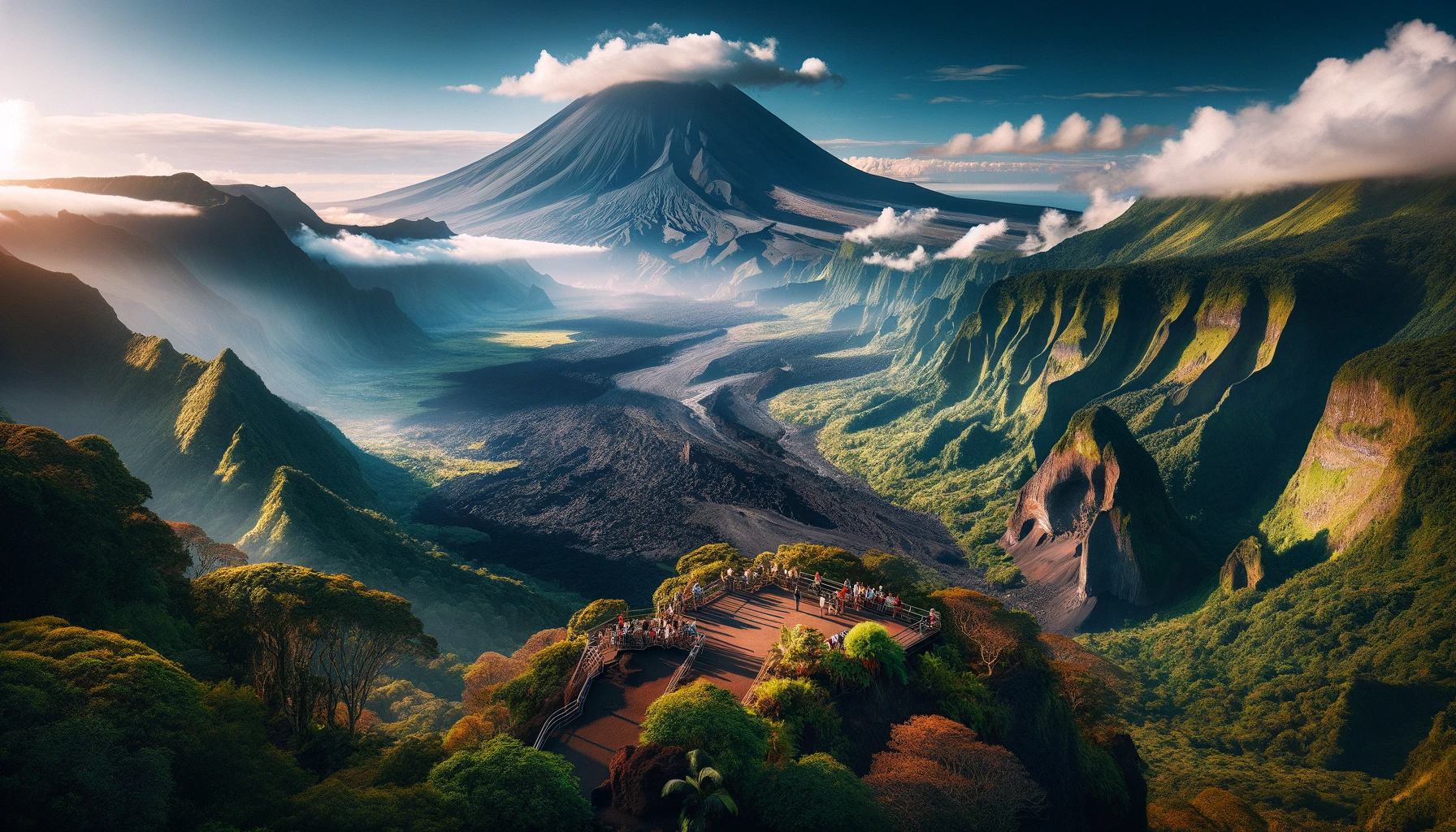Réunion Island is a region that boasts a remarkable blend of natural wonders and cultural diversity, stemming from its unique history as a melting pot of different cultures. Its integration as a French department and EU region adds an additional layer to its global connections and developmental aspirations.
List of National and Public Holidays in Reunion for the year 2025
- New Year’s Day is on Wednesday, 1st January 2025.
- Easter Monday is on Monday, 21st April 2025.
- Labour Day is on Thursday, 1st May 2025.
- Victory Day is on Thursday, 8th May 2025.
- Ascension Day is on Thursday, 29th May 2025.
- Whit Monday is on Monday, 9th June 2025.
- National Day is on Monday, 14th July 2025.
- Assumption Day is on Friday, 15th August 2025.
- All Saints’ Day is on Saturday, 1st November 2025.
- Armistice Day is on Tuesday, 11th November 2025.
- Abolition Day is on Saturday, 20th December 2025.
- Christmas Day is on Thursday, 25th December 2025.
List of National and Public Holidays in Reunion for the year 2024
- Easter Monday: Monday, 1 April 2024
- Labour Day: Wednesday, 1 May 2024
- Victory Day: Wednesday, 8 May 2024
- Ascension Day: Thursday, 9 May 2024
- Whit Monday: Monday, 20 May 2024
- National Day Reunion: Sunday, 14 July 2024 (Observed on Monday, 15 July 2024)
- Assumption Day: Thursday, 15 August 2024
- All Saints’ Day: Friday, 1 November 2024
- Armistice Day: Monday, 11 November 2024
- Abolition Day: Friday, 20 December 2024
- Christmas Day: Wednesday, 25 December 2024

History
- Early Settlements: Originally uninhabited, Réunion was known to Arab and African traders before being settled by the French in the 17th century.
- Colonial Era: The island became a prosperous colony based on the production of coffee and later sugar, heavily reliant on slave labor until slavery’s abolition in 1848.
- Post-Colonial Development: Transitioned from a colony to an overseas department of France in 1946, leading to significant social and economic changes.
Geography
- Location and Terrain: Réunion Island is located in the Indian Ocean, east of Madagascar. The island is noted for its volcanic, rainforested interior, coral reefs, and beaches.
- Natural Features: Dominated by two volcanic mountains, Piton de la Fournaise (an active volcano) and Piton des Neiges (a massive extinct volcano). The island’s diverse ecosystems range from coastal beaches to mountainous regions.
Culture
- Melting Pot of Cultures: Réunionese culture is a unique blend of African, Indian, European, and Chinese influences, reflecting its history as a meeting point for different peoples.
- Music and Dance: Known for its vibrant music and dance scene, including genres like Séga and Maloya, which are integral to the island’s cultural identity.
- Cuisine: The cuisine is a fusion of French, African, Indian, and Chinese influences, with dishes like cari (curry), rougail (a type of tomato sauce), and bouchons (dim sum).
Economy
- Sugar and Agriculture: Historically, the economy was dominated by sugar production. Other agricultural products include vanilla, rum, and tropical fruits.
- Tourism: An increasingly important sector, with the island’s natural beauty, cultural diversity, and adventure tourism (such as hiking and diving) attracting visitors.
- Economic Challenges: As an outermost region of the EU, Réunion faces challenges like high unemployment rates and dependency on imported goods.
Society
- Demographics: A diverse population comprising people of African, Indian, European, and Chinese descent.
- Languages: French is the official language, with Réunion Creole widely spoken.
- Social Services: As a French department, Réunion benefits from a high standard of public services, including education and healthcare.
Environmental Conservation
- Biodiversity: Home to a rich variety of flora and fauna, with many endemic species. The Réunion National Park, covering a large part of the island, is a UNESCO World Heritage site.
- Conservation Efforts: Active efforts to protect its unique ecosystems and biodiversity, particularly from invasive species and environmental degradation.
International Relations
- European Union Ties: As part of France, Réunion is an outermost region of the EU, contributing to and benefiting from EU policies and funds.
- Regional Engagement: Engages in regional cooperation with Indian Ocean countries, particularly in areas like trade, culture, and environmental protection.
Tourism
- Major Attractions: Attractions include the Piton de la Fournaise volcano, stunning cirques (natural amphitheaters), waterfalls, and beaches. The capital city, Saint-Denis, offers cultural and historical insights.
- Adventure and Eco-Tourism: Popular for hiking, canyoning, paragliding, and marine activities, offering unique experiences for eco-conscious and adventure tourists.

